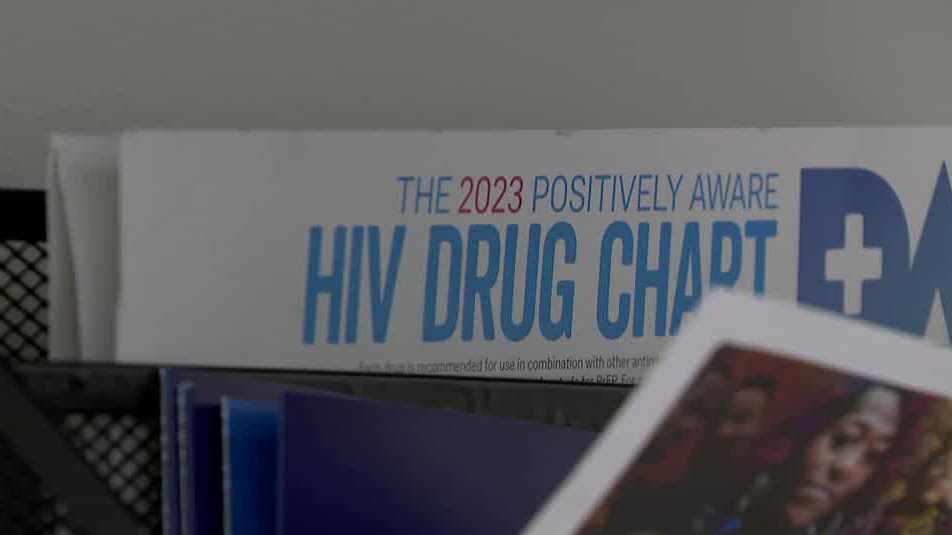If the Trump administration follows through on plans to eliminate the Centers for Disease Control and Prevention’s HIV Prevention Division, the state of Wisconsin could lose nearly $2 million in federal funding.The U.S. Department of Health and Human Services told Reuters this week it is evaluating the CDC’s HIV Prevention Division for overlap with other agencies, as part of the Trump Administration’s directive to reduce government spending. The $1.3 billion program tests people for HIV throughout the United States and promotes prevention through the use of contraceptives and PrEP.The Wisconsin branch of Vivent Health said Friday it receives $1.9 million from the CDC’s HIV Prevention Division to help with its mission of eliminating the virus. Vivent Health is a multi-state nonprofit dedicated to testing and treating people with HIV and spreading prevention resources around the state to mostly low-income communities at higher risk. Gregory Leon is the owner and head chef at Amilinda in Milwaukee. He’s also a patient at Vivent, diagnosed with HIV in 1999. “You can’t help but start to plan your own funeral,” Leon said.Leon is one of about 8,000 people in Wisconsin and one of about 4,000 people in the Milwaukee metro living with HIV.”Today, I’m healthy. I’m what they call undetectable,” Leon said.Leon said he is worried access to essential medication will diminish with potential federal changes. “My one pill a day — one month’s supply is $4,700,” Leon said. “I run a successful business, I make a decent living, and I can’t afford my own medication.””About 90 percent of the people we serve are living at or below 200% of the federal poverty limit,” said Bill Keeton, the chief advocacy officer at Vivent Health. “And what we also know is that the medications that are used to help keep people living with HIV alive and healthy are really expensive.” It’s a steep cost.”We make sure that income is not a barrier to care,” Keeton said”What happens if that 1.9 million goes away?” WISN 12 News Emily Pofahl asked.”The truth of the matter is, at some point, we’re not going to be able to deliver the same level of services,” Keeton said. A U.S. Department of Health and Human Services official told Reuters that prevention programs could be moved to another federal agency, but no official decision has been announced yet.Keeton said Vivent will rely heavily on charitable giving because the state likely won’t be able to fill the gap in federal funding if the program does get pulled.
If the Trump administration follows through on plans to eliminate the Centers for Disease Control and Prevention’s HIV Prevention Division, the state of Wisconsin could lose nearly $2 million in federal funding.
The U.S. Department of Health and Human Services told Reuters this week it is evaluating the CDC’s HIV Prevention Division for overlap with other agencies, as part of the Trump Administration’s directive to reduce government spending. The $1.3 billion program tests people for HIV throughout the United States and promotes prevention through the use of contraceptives and PrEP.
The Wisconsin branch of Vivent Health said Friday it receives $1.9 million from the CDC’s HIV Prevention Division to help with its mission of eliminating the virus. Vivent Health is a multi-state nonprofit dedicated to testing and treating people with HIV and spreading prevention resources around the state to mostly low-income communities at higher risk.
Gregory Leon is the owner and head chef at Amilinda in Milwaukee. He’s also a patient at Vivent, diagnosed with HIV in 1999.
“You can’t help but start to plan your own funeral,” Leon said.
Leon is one of about 8,000 people in Wisconsin and one of about 4,000 people in the Milwaukee metro living with HIV.
“Today, I’m healthy. I’m what they call undetectable,” Leon said.
Leon said he is worried access to essential medication will diminish with potential federal changes.
“My one pill a day — one month’s supply is $4,700,” Leon said. “I run a successful business, I make a decent living, and I can’t afford my own medication.”
“About 90 percent of the people we serve are living at or below 200% of the federal poverty limit,” said Bill Keeton, the chief advocacy officer at Vivent Health. “And what we also know is that the medications that are used to help keep people living with HIV alive and healthy are really expensive.”
It’s a steep cost.
“We make sure that income is not a barrier to care,” Keeton said
“What happens if that 1.9 million goes away?” WISN 12 News Emily Pofahl asked.
“The truth of the matter is, at some point, we’re not going to be able to deliver the same level of services,” Keeton said.
A U.S. Department of Health and Human Services official told Reuters that prevention programs could be moved to another federal agency, but no official decision has been announced yet.
Keeton said Vivent will rely heavily on charitable giving because the state likely won’t be able to fill the gap in federal funding if the program does get pulled.
